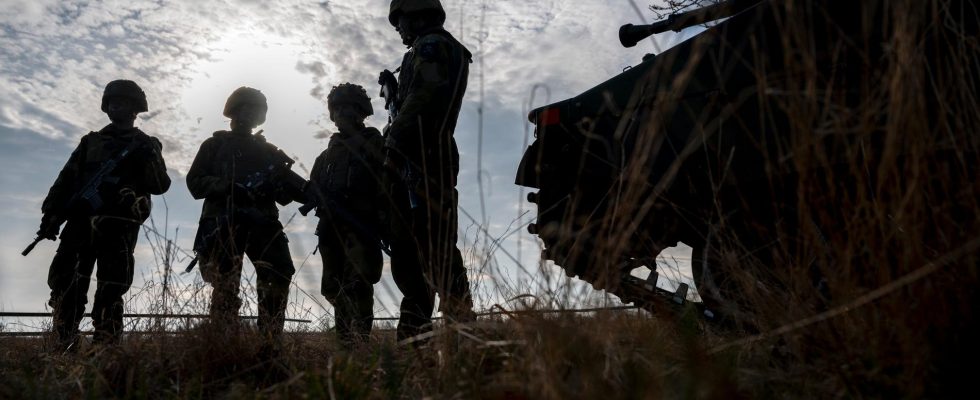unsaveSave
expand-left
full screen The requirements for military service are tougher than many people think. Archive image. Photo: Johan Nilsson/TT
Almost two out of three young people do not meet the requirements to be called up for conscription.
Depression and anxiety put an end to many – but it can also be about simple ailments such as eczema, or that you are untrained.
Almost two out of three young people cannot be called up for conscription. A figure that the Norwegian Public Duty Agency sees as worrying for the future, when more and more people need to do the dirty work.
– There are so many young people who have such risks of being called into a military environment that they are not suitable. But that doesn’t mean that there are so many young people who are sick, says Jesper Höjeberg, chief physician at Pliktverket.
Young people drop out for a variety of reasons. In the medical field, it is above all of mental illness.
– Depression and anxiety are often obstacles. Even if one is judged to be healthy at the moment, mental conditions have a tendency to be reactivated in stressful situations or war situations, says Höjeberg.
Tolerate gunpowder smoke
More severe illnesses such as epilepsy and diabetes are always disqualifying. But even mild ailments such as eczema, asthma and ADHD can lead to rejection.
– In many cases, it can be about conditions where people are actually completely healthy and feel well. They have no worries as long as they can take their medication daily.
But the military environment makes significantly higher demands than a normal day in life, says Höjeberg.
– If you have asthma that is not well regulated and are exposed to gunpowder smoke or tear gas, it means health risks that are not acceptable.
In addition to illnesses, the Swedish Duty Agency also looks at mental functioning, for example if you have difficulty working in groups or taking instructions.
Training level is also taken into account. A person who never exercises can be excluded for that reason.
Many are surprised
Previous injuries, such as cruciate ligament damage, can also be a problem, as can poor vision.
– We know that myopia is increasing among young people. It is a question for the Armed Forces which minimum view they can accept. If you lose your glasses, how well do you need to see to still function in the military environment, says Höjeberg.
Many, both young people and parents, are surprised by the high requirements.
– Many people find it difficult to understand why you can’t just do the dirty work, “it can’t be that dangerous, can it?” Then we need to be clear that, in the long run, this is an education that will lead to the fact that if the worst happens, you must function in fighting units, in war, to protect Sweden.
Could it be relevant to lower the requirements, now that more people have to do military service?
– It is the Armed Forces that owns the issue. They are aware of the problem in the same way as we are, and there is discussion about what the requirements profiles should look like.
FACT This can lead to rejection
Here are some common conditions that can lead to ineligibility for military service:
*Diabetes
*Epilepsy
*Severe psoriasis or eczema
*Severe allergies (e.g. nuts, shellfish, gluten intolerance, milk protein allergy)
*Asthma that affects lifestyle
*BMI – too low (under 18.5) or too high (over 35)
*Eyes with visual field defects, severe refractive errors
*Mental illnesses such as psychosis, bipolar disorder, panic syndrome, anorexia
*Repeated use of drugs
*Autism
*ADHD, if you take medication or need support measures
Source: Jobbafrisk, doctor Jesper Höjeberg
Read more
